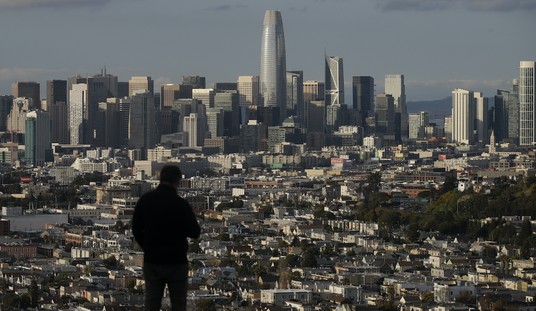Just absorb the zeroes for a moment. The US has already spent more than a million billion trillion dollars than it expects to receive this year in revenue, and we have almost three full months left to go. The Wall Street Journal wonders whether that will hinder Barack Obama in getting his big-government spending plans through Congress, and whether Congress has the will to address runaway deficits at all:
President Barack Obama on Monday stressed the importance of enacting health-care legislation as a way to bring down long-term deficits. A spokesman for the White House Office of Management and Budget, Kenneth Baer, termed health-care reform “the key to our fiscal future.”
But some budget watchdogs worry that Congress eventually could pass health-care legislation that relies on uncertain long-term savings, while substantially increasing short-term government expenditures.
The Obama administration in May estimated that the annual deficit would hit about $1.84 trillion by the end of the fiscal year, an increase from February’s projection of $1.75 trillion. The administration also slightly revised upward its deficit estimates for 2010 and 2011, to $1.26 trillion and $929 billion, respectively.
Slumping tax receipts, particularly from corporations and individual investors, have contributed substantially to the widening gap, as has rising spending on social safety-net programs, economic-stimulus measures and aid to auto and financial companies.
By historical standards, the 2009 deficit — at 13% or more of the country’s gross domestic product — would be the U.S.’s biggest since the end of World War II in 1945, when it reached 21.5%.
The Journal also supplies this graphic to explain government spending and receipts between this year and last:

The revised number will probably also get eclipsed as the recession continues to choke revenue to the Treasury. The Obama administration’s OMB expected growth in the final two quarters of 2009 that would reverse revenue decline when calculating these expectations; indeed, that’s one reason why the White House had to adjust the projection by $90 billion from February to May. The high deficits of the following years will get even higher as Obama continues to press for spending programs while the recession grinds the American economy downward.
Obama will claim, of course, that he inherited this deficit from George Bush, but as I’ve pointed out a number of times, it’s simply not true. Bush did not get a chance to address the FY2009 budget, as the Democrats in Congress kept postponing budgeting for FY09 until Bush left office. Even more critically, Congress spends the money, and since January 2007, Congress has been controlled by the Democrats — including then-Senator Barack Obama. Bush did approve the TARP funding and the Fannie/Freddie bailout — with considerable pressure from Congressional Democrats to do so — but a look at the right-hand side of the above graphic shows that spending significantly increased from FY08 to FY09 even without the bailouts. Most of the increase came from the “Other” category: non-defense discretionary spending, and the rest from entitlement expansion.
Barack Obama’s domestic agenda promises to make all of these conditions even worse. He wants to create a massive expansion of Medicare’s purview, which will greatly increase the entitlement burden that already threatens to undermine the stability of America’s currency and credit. On top of that, Obama wants to impose an energy-rationing system that will make the recession even worse, lowering receipts from almost all categories except the “other” category as DC reaps the taxes it imposes on energy producers. And on top of that, Obama wants to force American companies to pay taxes on foreign profits — almost alone among Western nations — that will force multinationals to reorganize overseas to avoid the competitive disadvantage Obama’s policies impose.
Those receipts will keep declining, and the spending will continue to increase. We will look at the $1,000,000,000,000 barrier with nostalgia in a very short period of time.








Join the conversation as a VIP Member